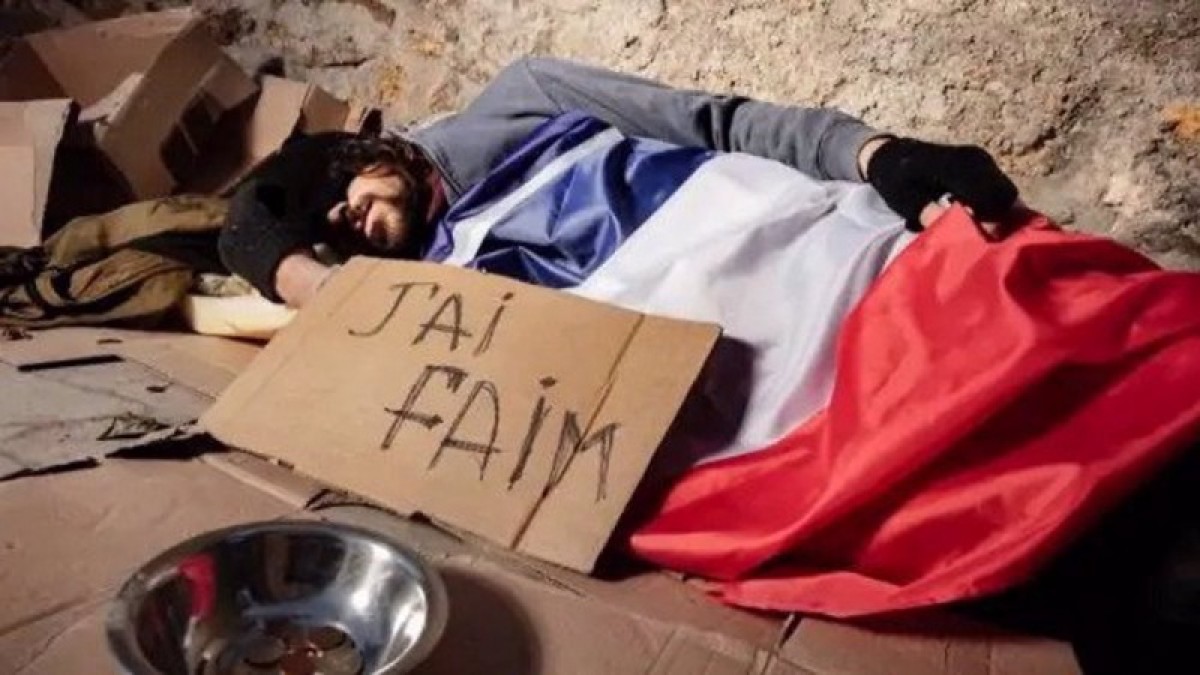 310
310
The Minister Delegate for Housing, Olivier Klein called on companies with unused office space to make available to the homeless due to difficulties linked to the cost of living, as part of the extreme cold plan. “I appeal to the heads of companies who have offices they no longer use and which could be quickly made available for the homeless,” Olivier Klein told France Inter radio on Saturday, December 17.
Temperatures in much of the country have occasionally dropped significantly in recent days. Some associations estimate that more than 2,000 children are currently sleeping rough in France. On Monday, regional authorities met to identify ways to make unused public buildings available as emergency shelters. Four regions, including Ile de France, bringing together Paris and its region, launched a plan to this effect on Saturday.
The Morts de la Rue collective estimated that last winter at least 620 homeless people (SDF) died in the streets across France. Elsewhere in Britain, many charities have issued warnings that low-income people are at risk on days when temperatures drop sharply, as average energy bills are twice as high as at the same time l ‘last year. “We are all struggling with everything, gas, electricity, food. Until a year ago I could get by on benefits,” said Nora, an unemployed woman in her 50s who regularly visits a warming centre.
Europe’s cost of living and energy crises have deepened over the past year as rising demand as economies reopen post-COVID has coincided with Russia’s war in Ukraine and a subsequent compression of oil and gas supplies to Europe. However, experts say the UK is the worst affected country in Western Europe, as it saw the annual inflation rate hit 11.1% in October 2022.
Gas prices in Europe have soared this year after Russia cut gas supplies following its special military operation in Ukraine, pushing up fuel costs and fueling inflation. In this cold winter, Russia has virtually cut off its natural gas supply to Europe, citing technical difficulties caused by the sanctions.
The negative effects of the shortage of energy, especially gas, are gradually being seen in the German economy and the lives of households who are called upon by the government to restrict their consumption. Violent riots broke out afterwards, claiming the lives of dozens of people and the security forces, while paving the way for
As eight months have passed since the start of the war in Ukraine, the Old Continent is increasingly mired in an unprecedented energy crisis. Germany, Europe’s largest economy, is facing a cut in natural gas from Russia, which supplied more than half of its fuel needs. To that effect, the Federal Network Agency (BNetzA) has urged households and businesses to turn down the heat as the country tries to conserve supplies during the energy crisis, Bloomberg reported Friday, December 9.
The report states that industrial gas consumption in the country fell by 12% in the week to last Sunday, while household and business consumption fell by 13%. Germany would miss about 50 billion cubic meters of gas in annual deliveries due to reduced imports from Russia. The country’s previous attempts to diversify gas supplies have contributed to the current energy crisis.
According to German Foreign Minister Annalena Baerbock, the share of Russian gas imports into the country has recently fallen to 6-8%. In 2021, more than half of Germany’s gas supply came from Russia. Luc Michel, geopolitician and Philippe Hugon, war reporter speak on the subject.
Comment
Post a comment for this article